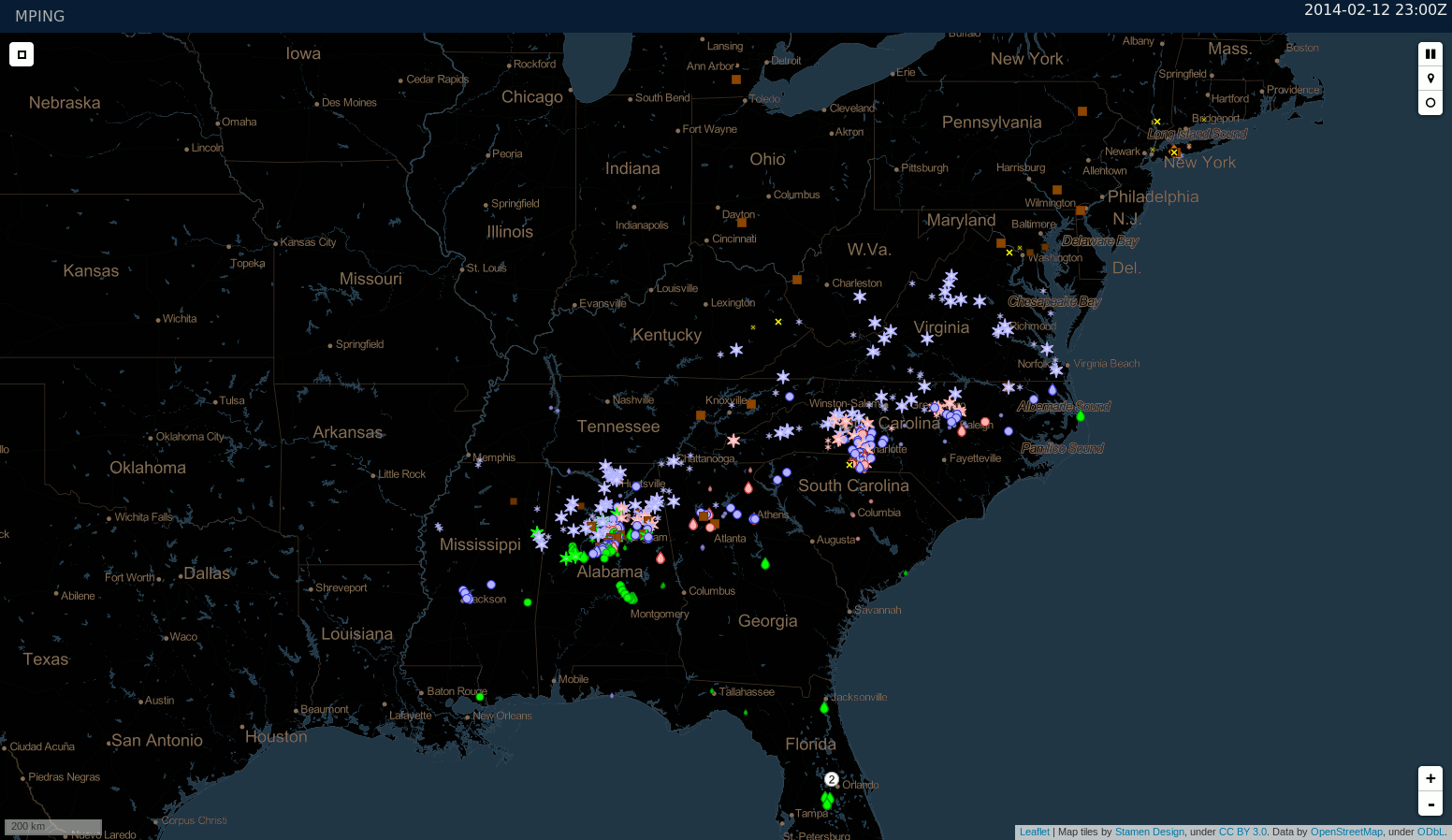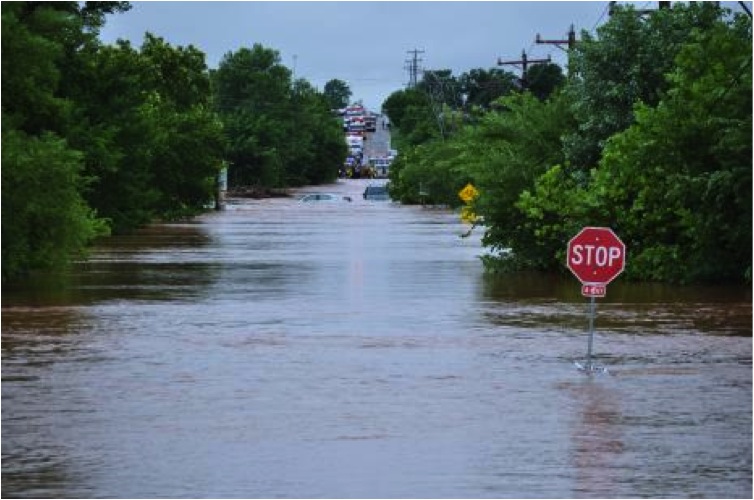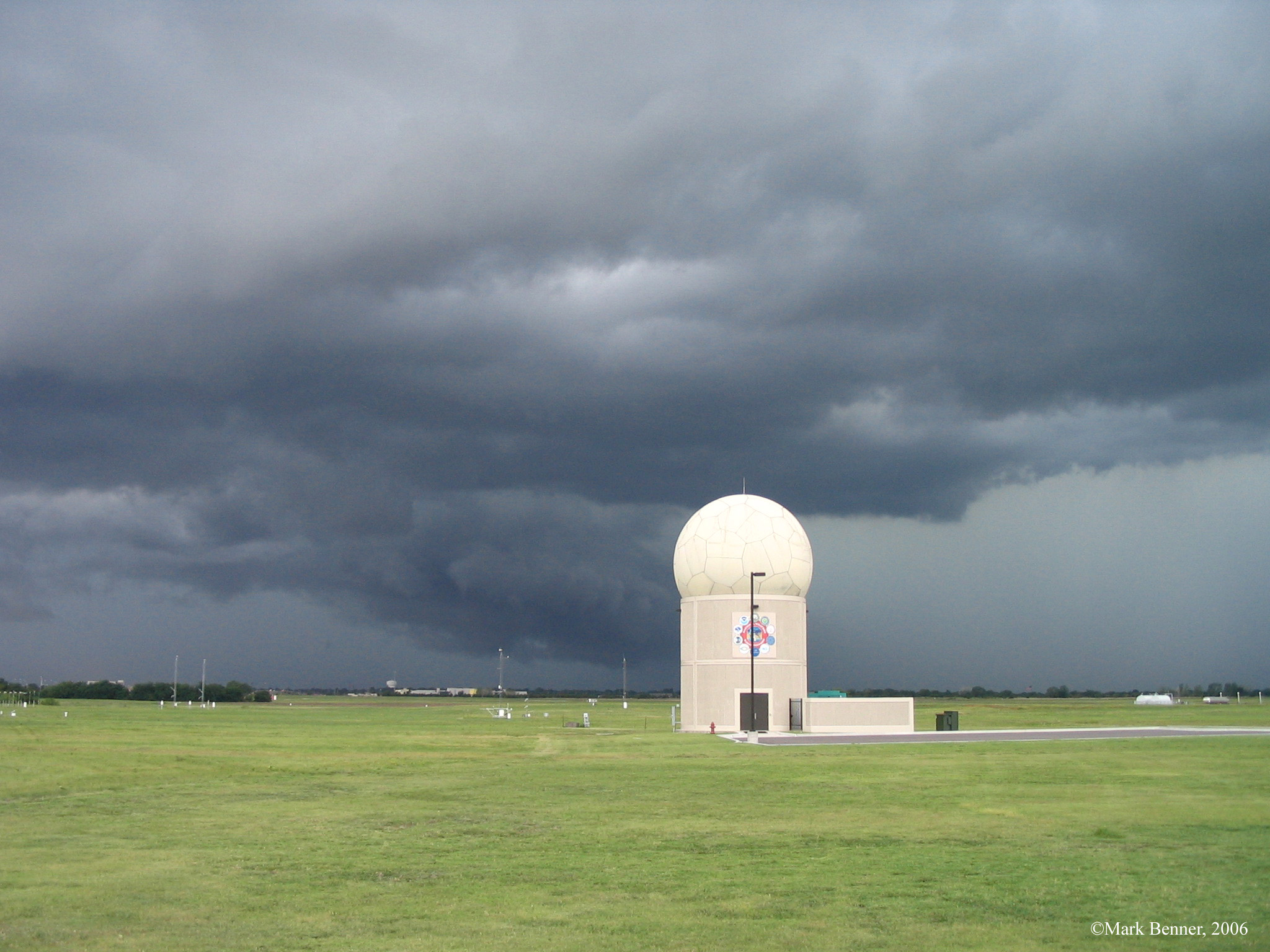
 NSSL, CIMMS and University of Oklahoma researchers have launched a new project to collect public observations of flooding that will help improve flash-flood prediction and warning tools in the US.
NSSL, CIMMS and University of Oklahoma researchers have launched a new project to collect public observations of flooding that will help improve flash-flood prediction and warning tools in the US.
The Flood Observations – Citizens As Scientists using Technology project (FLOCAST) will first use crowdsourced data about flooding and its severity collected through the already successful mPING (meteorological Phenomena Identification Near the Ground) app available on smart phones. Crowdsourced reports have the potential to provide a large and independent database flood events at fine spatial resolution.
The FLOCAST team will then target the local emergency management community, who tend to provide the most accurate and detailed reports of flooding, and ask them to respond to a 5-minute web-based questionnaire. As time permits, participants will provide details of the timing and location of flash flooding impacts in their areas of responsibility shortly following the event. They will also be able to submit a photo documenting the flooding event.
This same group of expert witnesses will be asked to identify victims, those directly impacted by the flooding, to volunteer their participation in a telephone interview. Researchers will use the information to better understand how society perceives, behaves and responds during flash-flood events, and improve the design, utility, and communication of information about impending flash floods to reduce loss of life.




